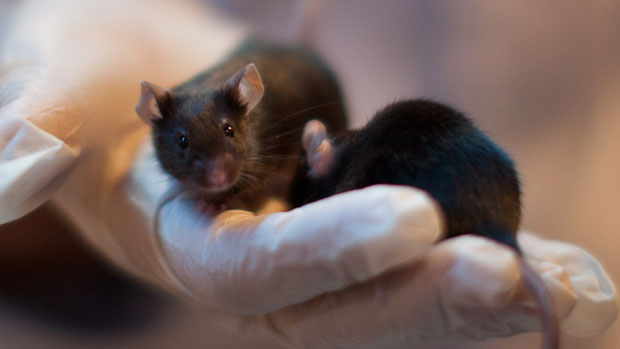What is hantavirus?
One man dies from rodent-borne respiratory disease, says Chinese state media

A free daily email with the biggest news stories of the day – and the best features from TheWeek.com
You are now subscribed
Your newsletter sign-up was successful
A man who died while on a bus journey in China is reported to have tested positive for hantavirus, prompting the authorities to test 32 of his fellow passengers.
According to the English-language newspaper Global Times, a mouthpiece for the government in Beijing, the man was travelling from the southern province of Yunnan to Shandong on the northeast coast.
What is hantavirus?
The Week
Escape your echo chamber. Get the facts behind the news, plus analysis from multiple perspectives.

Sign up for The Week's Free Newsletters
From our morning news briefing to a weekly Good News Newsletter, get the best of The Week delivered directly to your inbox.
From our morning news briefing to a weekly Good News Newsletter, get the best of The Week delivered directly to your inbox.
According to the US Centers for Disease Control and Prevention (CDC), hantaviruses are “a family of viruses spread mainly by rodents” that “can cause varied disease syndromes in people worldwide”.
Hantaviruses in the Americas are known as “New World” hantaviruses, CDC says, and may cause “hantavirus pulmonary syndrome (HPS)”.
Other “Old World” hantaviruses are found mostly in Europe and Asia and may cause haemorrhagic fever with renal syndrome (HFRS).
Hantavirus is fairly rare, with CDC reporting in January 2017 that there had been 728 cases of the infection since surveillance in the US began in 1993.
A free daily email with the biggest news stories of the day – and the best features from TheWeek.com
According to the World Health Organization (WHO), the last known outbreak was in January 2019, when 29 confirmed cases, including 11 deaths, were reported in Patagonia in southern Argentina.
What is the difference between HPS and HFRS?
HPS is a severe, sometimes fatal, respiratory disease. To date, there are no reported cases of HPS in the US in which the virus was transmitted from one person to another.
In Chile and Argentina, rare cases of person-to-person transmission have occurred among close contacts of a person who was ill with a specific type of hantavirus.
HFRS is actually the name of a group of clinically similar illnesses caused by hantaviruses. The viruses that cause these illnesses are called Hantaan, Dobrava, Saaremaa, Seoul and Puumala.
According to CDC, Haantan virus is distributed in eastern Asia, particularly in China, Russia and Korea. Puumala virus, meanwhile, is found in Scandinavia, western Europe and western Russia.
Dobrava virus is found primarily in the Balkans, and Seoul virus is found worldwide. Saaremaa is found in central Europe and Scandinavia.
How is hantavirus spread?
Hantaviruses are carried and transmitted by rodents.
According to the European Centre for Disease Prevention and Control (ECDC), transmission of the virus to humans occurs through the inhalation of infected rodent urine, droppings or saliva.
There is no curative treatment for hantavirus infection, ECDC says, and eliminating or minimising contact with rodents is the best way to prevent infection.
Occupations such as forestry workers and farmers, where workers may come into contact with rodents, have an increased, though still small, risk of exposure.
–––––––––––––––––––––––––––––––For a round-up of the most important stories from around the world - and a concise, refreshing and balanced take on the week’s news agenda - try The Week magazine. Start your trial subscription today –––––––––––––––––––––––––––––––
What are the symptoms?
According to the American Lung Association (ALA), symptoms include:
- Fever greater than 38.3 degrees celsius
- Chills, body aches and/or headaches
- Nausea and vomiting and abdominal pain
- A dry cough followed by rapid onset of breathing difficulty
“Diagnosing [hantavirus] can be challenging because early symptoms mimic the flu,” the ALA notes. Some of the symptoms are also similar to Covid-19.
-
 The environmental cost of GLP-1s
The environmental cost of GLP-1sThe explainer Producing the drugs is a dirty process
-
 Greenland’s capital becomes ground zero for the country’s diplomatic straits
Greenland’s capital becomes ground zero for the country’s diplomatic straitsIN THE SPOTLIGHT A flurry of new consular activity in Nuuk shows how important Greenland has become to Europeans’ anxiety about American imperialism
-
 ‘This is something that happens all too often’
‘This is something that happens all too often’Instant Opinion Opinion, comment and editorials of the day
-
 A Nipah virus outbreak in India has brought back Covid-era surveillance
A Nipah virus outbreak in India has brought back Covid-era surveillanceUnder the radar The disease can spread through animals and humans
-
 Covid-19 mRNA vaccines could help fight cancer
Covid-19 mRNA vaccines could help fight cancerUnder the radar They boost the immune system
-
 The new Stratus Covid strain – and why it’s on the rise
The new Stratus Covid strain – and why it’s on the riseThe Explainer ‘No evidence’ new variant is more dangerous or that vaccines won’t work against it, say UK health experts
-
 RFK Jr. vaccine panel advises restricting MMRV shot
RFK Jr. vaccine panel advises restricting MMRV shotSpeed Read The committee voted to restrict access to a childhood vaccine against chickenpox
-
 RFK Jr. scraps Covid shots for pregnant women, kids
RFK Jr. scraps Covid shots for pregnant women, kidsSpeed Read The Health Secretary announced a policy change without informing CDC officials
-
 New FDA chiefs limit Covid-19 shots to elderly, sick
New FDA chiefs limit Covid-19 shots to elderly, sickspeed read The FDA set stricter approval standards for booster shots
-
 RFK Jr.: A new plan for sabotaging vaccines
RFK Jr.: A new plan for sabotaging vaccinesFeature The Health Secretary announced changes to vaccine testing and asks Americans to 'do your own research'
-
 Five years on: How Covid changed everything
Five years on: How Covid changed everythingFeature We seem to have collectively forgotten Covid’s horrors, but they have completely reshaped politics